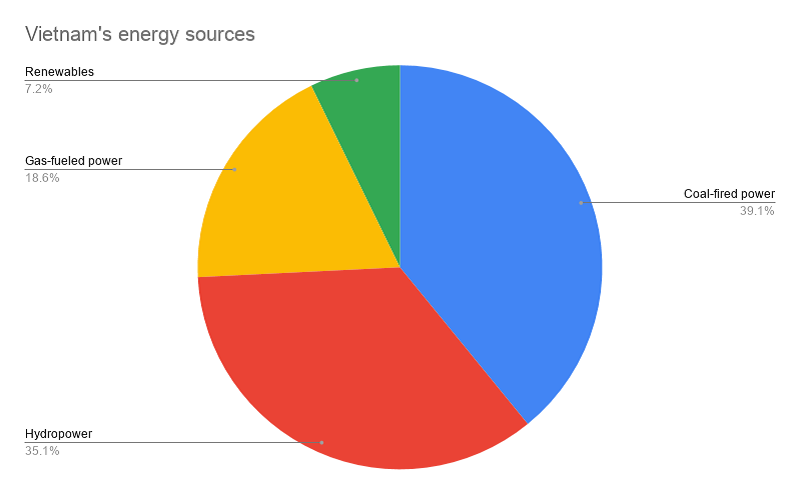LNG – future of Vietnam’s energy
Vietnam has been on way to pursue an energy transition that reduce carbon emission and develop renewable sources in an effort to combat climate change .
Liquefied natural gas (LNG) has been considered a source of energy that is able to meet Vietnam’s rising power demand and clean enough in comparison with coal power which the country is advised to minimize from now on.
Vietnam has been on way to pursue an energy transition that reduces carbon emission and develops renewable sources in an effort to combat climate change and there will be room in the country’s mix for fossil fuels as long as they are clean, a local expert has said.
| Dang Huy Dong, president of Vietnam’s Planning and Development Institute. Photo: MPI |
“Gas is by far the cleanest fossil fuel,” Dang Huy Dong, president of Vietnam’s Planning and Development Institute, said at the Future Energy Asia 2020 forum in Bangkok last month.
Gas, particularly LNG, is the only meaningful solution for Vietnam to reduce emissions in the context that the potential of hydropower is almost exhausted while solar and wind power are not reliable enough, the Bangkok Post quoted Dong as saying.
“Only gas could provide Vietnam with a practical energy supply, in particular LNG,” according to Dong, who is a former deputy minister of Planning and Investment.
He attributed the choice of gas to falling fuel prices, improved efficiency and technologies. At the same time, the price of coal-fired power is rising due to supply and financial limitations.
For the aforementioned reasons, Dong believes Vietnam needs to move away from coal to other sources, as China and many other countries are doing.
“In the interests of environmental protection and sustainable development, more and more provinces in Vietnam are demanding a change from coal projects to LNG power projects,” he said.
Vietnam’s power demand and the government’s choice
| Vietnam's energy sources. Data: MOIT/Bangkokpost. Chart: Linh Pham |
Currently, coal-fired power plants generate about 39% of the electricity consumed in Vietnam. Hydropower accounts for 35%, gas-fired power 18.5%, and renewables 7.2%.
Over the past decade, hydropower generating capacity has recorded the highest growth rate in Vietnam. The country now has 5,500 megawatts (MW) solar capacity, representing 40% of all such capacity in Southeast Asia. This suggests a boom in renewable energy projects in Vietnam, where more attractive feed-in tariff (FIT) policies have been introduced for solar and wind power.
However, as the second largest power market in ASEAN, the country of 95 million is facing a critical supply challenge, with a need to triple capacity by 2030, the expert said.
“Rapid urbanization and industrialization have driven up electricity consumption in Vietnam dramatically,” he said, adding that southern Vietnam was at risk of being undersupplied.
In addition to expanding capacity, Vietnam has encouraged energy efficiency and renewable energy, reduction of CO2 emissions and creation of an energy market through the country’s eighth National Power Development Master Plan for the 2021-2030 period.
Furthermore, the government sees an efficient and reliable power supply as critical for socio-economic development. In 2016, it abandoned plans for nuclear development, citing safety concerns following the 2011 Fukushima disaster in Japan. It has resulted in a shift in long-term planning to include other sources to replace the planned nuclear capacity.
Remarkably, Vietnam is also interested in greater integration of power development throughout Southeast Asia, deploying cheaper sources as well as optimizing system operations.
“I think this is somewhat in line with the (goals of) interconnectivity and interconnection within ASEAN,” Dong emphasized.













